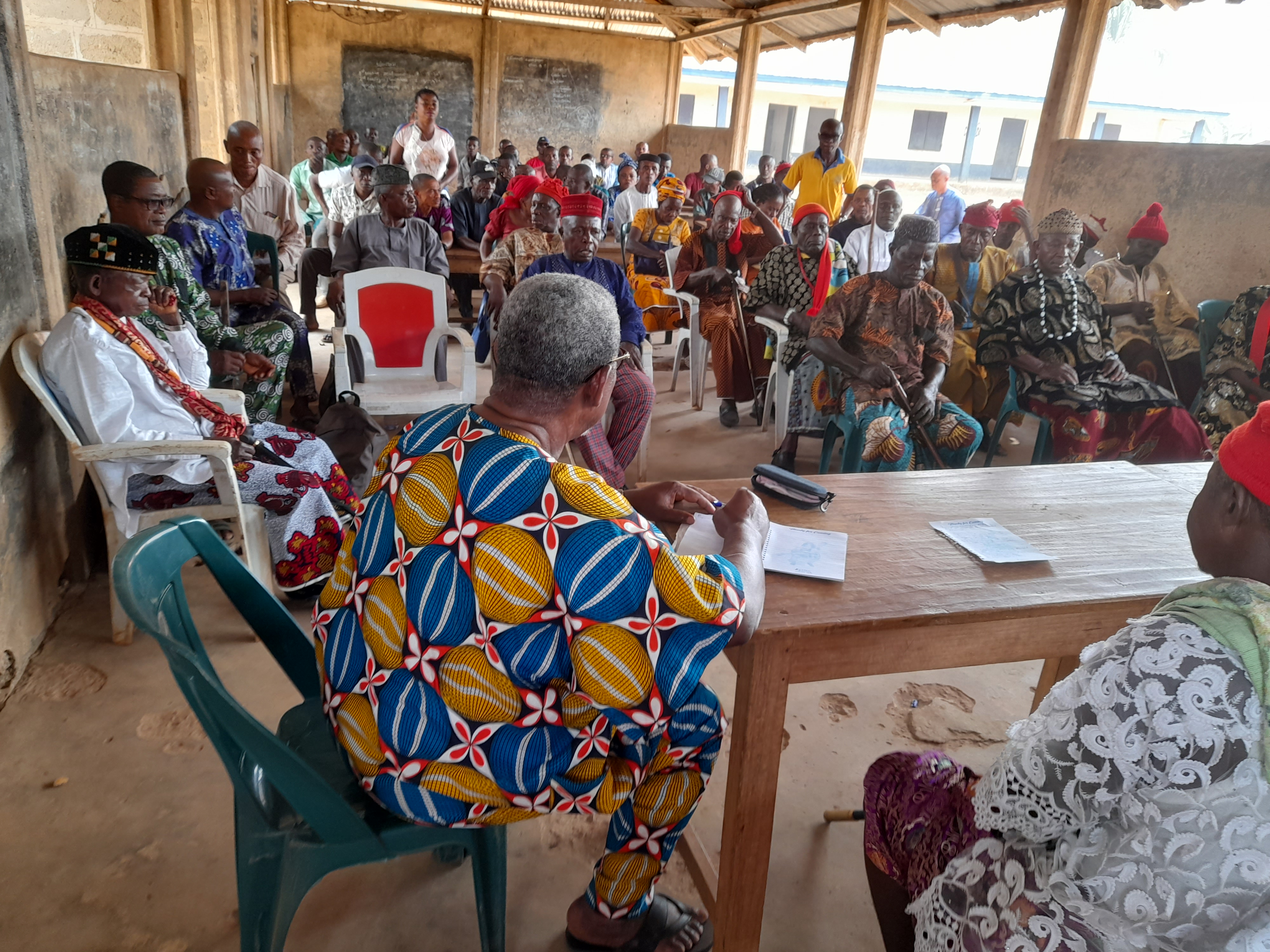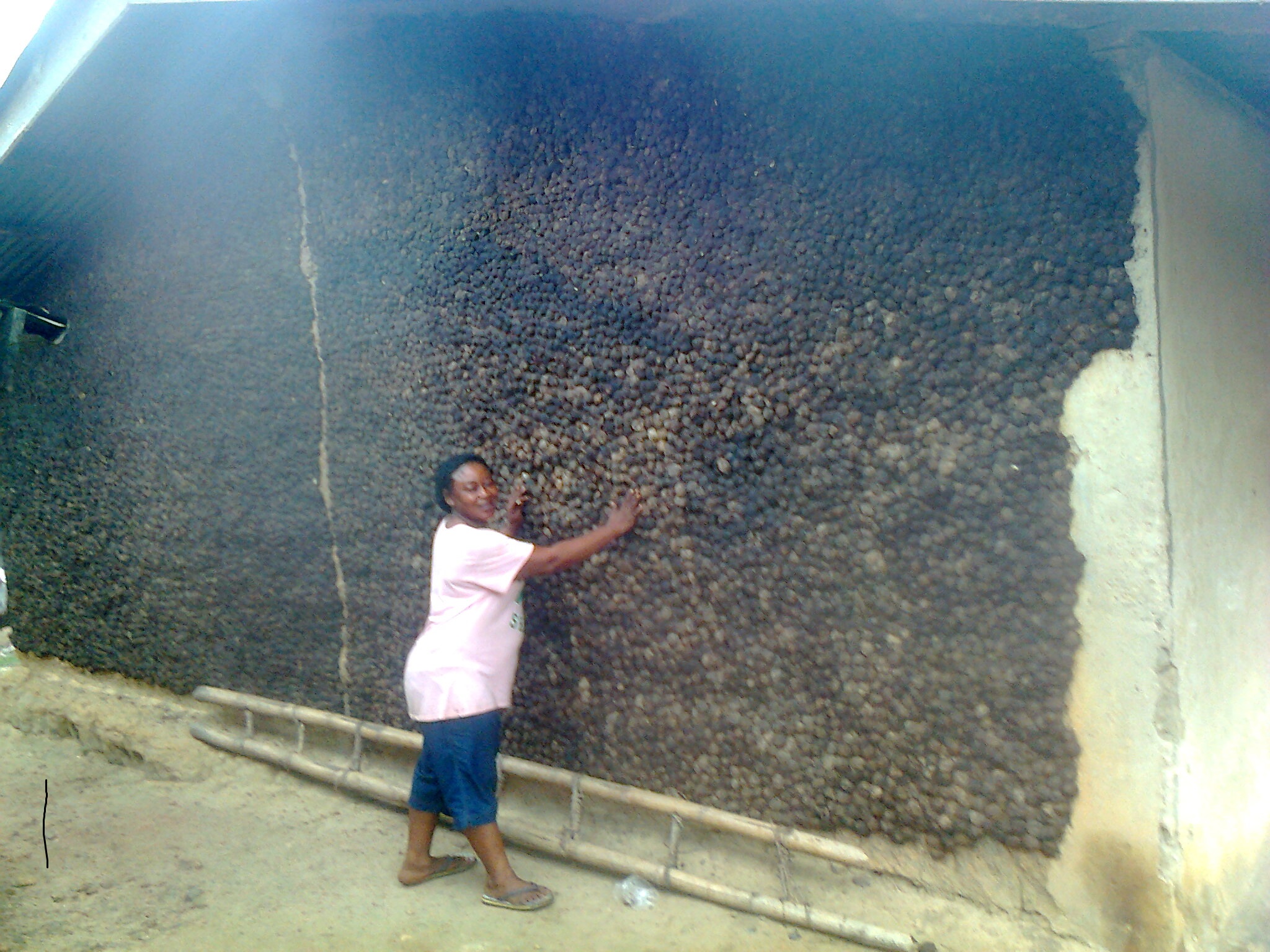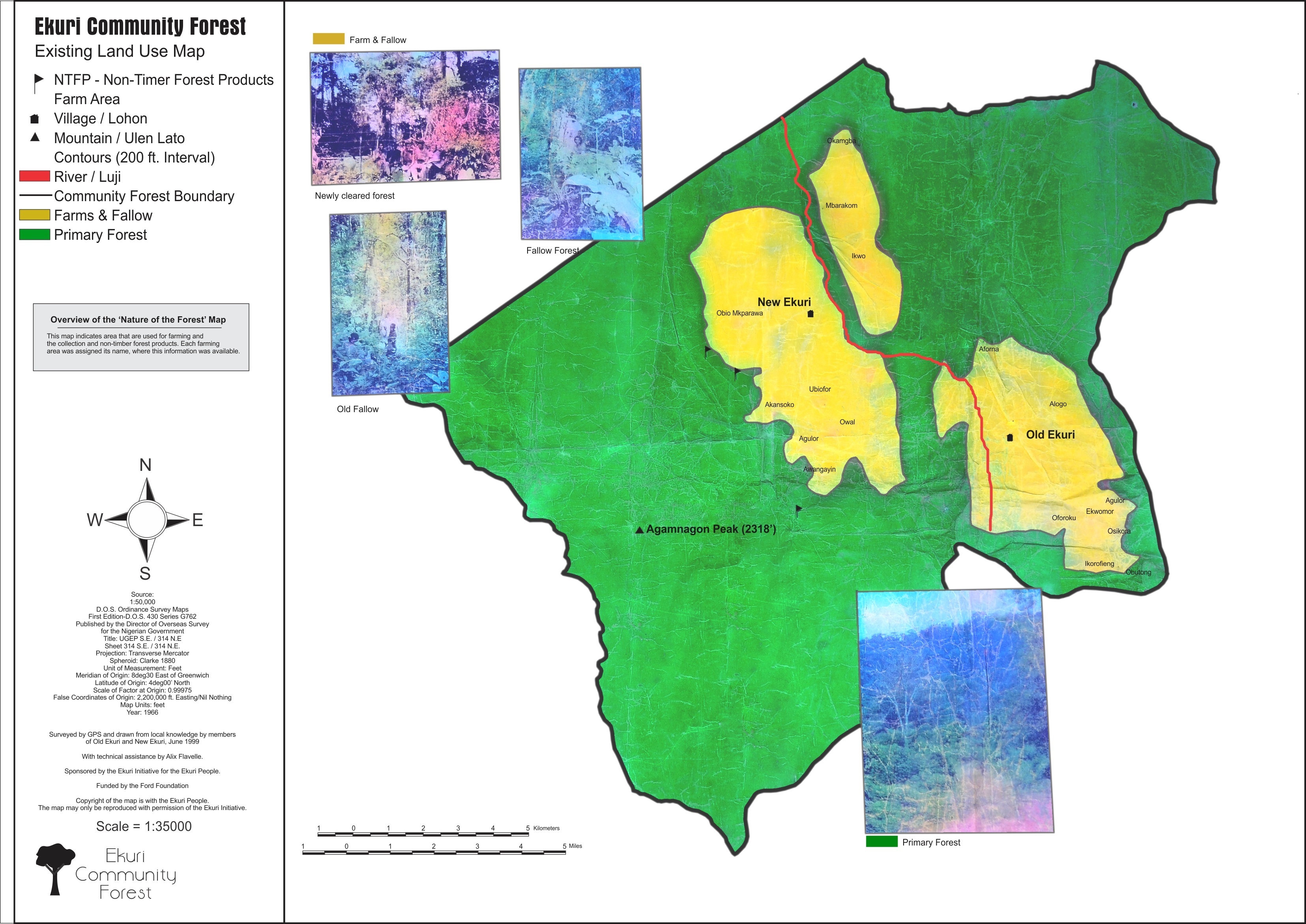Ekuri ICCA, Nigeria
Description
The name of the ICCA is Ekuri ICCA, Nigeria and is located in Ekuri community in Cross River State of Nigeria. The Ekuri community consists of Old Ekuri and New Ekuri Villages and together they own 33,600 hectares of Ekuri community forest. The Ekuri community forest is situated north-west of the Cross River National Park and Oban Hills Programme and to the north of the Ukpon River Forest Reserve. North-east of the Ekuri community forest sits Okokori and Etara /Eyeyeng community forests and to its west, the Iko Esai community forest. The Ekuri community is made up of 6,200 indigenous peoples called Nkokoli and the main occupation is farming, hunting, forest gathering and trading. The objectives of the ICCA is to maintain the environment and species diversity for both the wildlife and communities’ benefit, helping to repair some of the damage done by humans and provide opportunities for education and the enjoyment of the environment.

History and activities
In 1982, the Ekuri community conceived the idea of formally involving the community in forest management. The community realized this was necessary after watching neighbouring communities lose their forests due to overexploitation and logging. In 1992, the Ekuri community started community forestry. It established the Ekuri Initiative, an NGO focused on conservation and sustainable forest management, where proceeds generated are used to improve livelihoods of the Ekuri people and build infrastructure, including a road, school, health center, market and town hall.

Conservation
Over the years, the Ekuri ICCA has continued to conserve the rich biodiversity of Ekuri community forest, and it is the largest remaining community forest in Nigeria today. Ekuri ICCA is successfully conserving the landscape, plants and animals, including many endangered plant (Cola nigerica, Entandrophragma cylindricum, Pericopsis elata and Tieghemella heckelii) and animal (African forest elephants, common chimpanzee, Preuss's red colobus, Sclater's guenon and drill) species. Maintaining high levels of biodiversity and a high-quality ecosystem leads to greater genetic diversity in the Ekuri forest, which increases the ability of organisms to cope with environmental stressors. Ekuri forest provides many ecological services for the community, including food security, the purification of air and water, decomposition of waste, climate control and defence against flooding. It also provides many social benefits, such as resistance to diseases, good health, well-being, happiness and recreational and spiritual benefits.
The Ekuri community are working to conserve the Ekuri forest in many ways, including:
- promoting alternative sustainable cultivation techniques (notably permaculture)
- gaining legal ownership (title) and rights to the land
- restoring and rehabilitating degraded ecosystems
- coordinating commodity roundtables (highly interactive type of meetings to gather community members and facilitate a conversation in which members share what they are working on and solve problems together.)
- promoting ecotourism
- increasing surveillance and patrols of protected areas
- establishing programs that promote economic diversity and sustainable use of the ICCA, for example promoting entrepreneurship in extracting medicines, drugs, and herbal supplements from the rainforest that does not result in increased deforestation
Management and governance
The community has an established governance institution made up of a general assembly, a council of chiefs and the age-grades. Age grade is an association of people of equal or about the same age, operating within a given territory or area with the aim of individual, collective and societal transformation/development. Management decisions for the area are made by members of the general assembly, council of chiefs and the bye-laws, or local laws. Its enforcement is carried out by the aged-grades and eco-guards from the Worthy Association for Tackling Environmental Ruins (WATER), who help to facilitate the implementation process.
There has been a lack of government support for the Ekuri ICCA in recent times despite the existence of supportive laws. The ICCA is facing multiple threats and problems, including environmental injustice, logging, unsustainable harvesting of non-timber forest products, water poisoning for fishing, hunting, deforestation, poverty and climate change. The community are attempting to overcome these threats by investing in conservation education, environmental advocacy, community organizing (a process where people who live in proximity to each other or share some common problem come together into an organization that acts in their shared self-interest), non-violent protests, and litigation. In 2004, the Ekuri community won the UNDP Equator Award for their outstanding successes in reducing poverty through conservation and sustainable use of biodiversity, demonstrating it is a flagship community forestry project in Nigeria.

Next step and lessons learned
The Ekuri community are planning future activities to strengthen and support the Ekuri ICCA and improve the livelihoods of indigenous Ekuri people, including:
- conservation education/ outreach/ awareness raising
- updating the perimeter survey
- digitizing the updated survey plan
- revising the Ekuri land use plan and the bye-laws
- building capacity to tackle climate change
- restoring and rehabilitating ecosystems
- providing payments for ecosystem services
- increase surveillance of and patrols in protected areas
- building research facilities for training local scientists and guides
- building rural infrastructure
As a next step, Ekuri will develop a 10-year strategic plan broken into short, medium and long-term plans and prioritise the activities with the use of a pairwise-ranking tool. Ekuri will need human, material, financial and capital resources to achieve its strategic plan. Local labour resources and raw materials from within the ICCA will therefore need to be complemented with grants, technical expertise, capital and other resources from outside of Ekuri. If Ekuri are successful in securing the right kind of technical, financial and capacity support, Ekuri ICCA will thrive for the benefit of present and future generations.
This case study was originally published by UN Environment Programme World Conservation Monitoring Centre (UNEP-WCMC) on November 2022. The content was provided by the custodians of this ICCA. ICCA is self-declared and has not gone through a peer review process to verify its status. More details on this process can be found here. The content of this website does not necessarily reflect the views or policies of the United Nations Environment Program or WCMC.